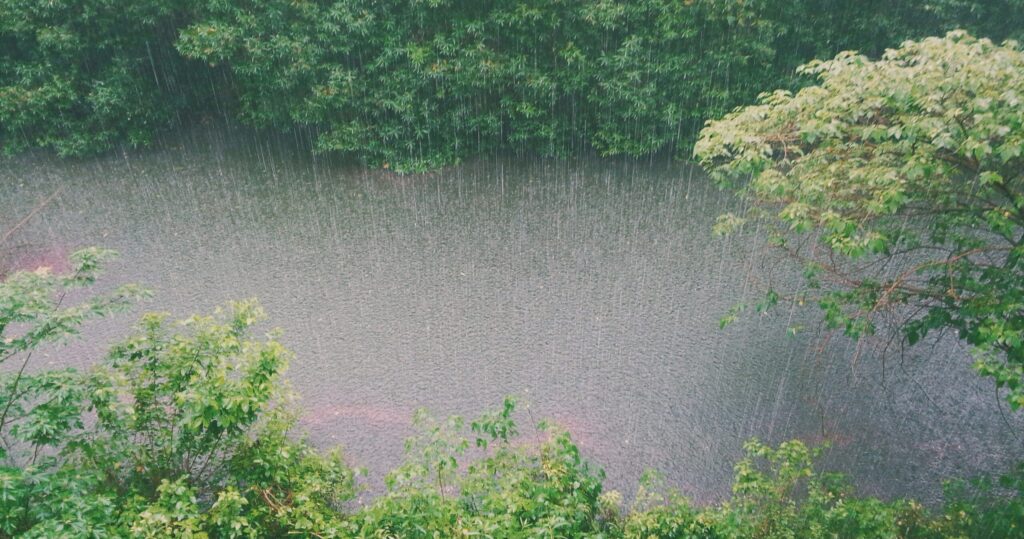The floods in Germany have mercifully subsided. But the tide of exploitive rhetoric surrounding them has not. So we need to return to that topic, including to observe that that in Passau, Germany they’ve been marking floods on a wall for 500 years. So they apparently didn’t realize this was a once-in-a-millennium event. And to observe that the excuse-making has gotten worse even as we discover ever more appalling examples of how authorities obsessed with saving us from hypothetical climate change decades away didn’t lift a finger to save people from actual flooding now, then blamed CO2 for their negligence. In fact their disaster response was so bad that one meteorologist said bluntly (original here) “Germany has long been a failed state when it comes to protecting people from natural catastrophes.”
The slippery blame-shifting is embarrassing. At one point Ms. Merkel said “The German language has no words, I think, for the devastation.” And one is tempted to add that if German doesn’t, the rest of us certainly don’t, given its rich vocabulary of zerstören, vernichten, abreissen, niederreissen, verdrücken and so on. But what can it do with the gall of incompetent, callous, evasive politicians?
Contrary to some mistaken reports, it wasn’t Merkel herself who said “We weren’t warned”. But it was her that said “We must hurry. We have to be faster in the fight against climate change” when the brutal reality is that her own government, and many others in Germany, had been culpably slow in the fight against an actual instance of extreme weather.
The claim that being “faster” in the fight against climate change could have saved these lives is effrontery. According to the alarmists’ own computer models, drastic cuts in GHGs will have no measurable impact on temperature for at least 80 years so it certainly won’t have any impact on floods in our lifetimes. Whereas telling people “Gehen in die hügel, schnellllllll” would have extended many of those lives. To say nothing of arranging actual transport for them. Being faster there, with readily available technology and equipment, would have turned a lethal catastrophe into an inconvenience.
It is now painfully clear that, even if climate change contributed to the flooding, it was government inaction in the face of clear warnings that killed people. As the London Times reported, “The first signs of catastrophe were detected nine days ago by a satellite orbiting 500 miles above the tranquil hills around the Rhine river.” Of course satellites detect a lot of stuff and it can be hard to interpret. But not this time. “Over the next few days a team of scientists sent the German authorities a series of forecasts so accurate that they now read like a macabre prophecy: the Rhineland was about to be hit by ‘extreme’ flooding, particularly along the Erft and Ahr rivers, and in towns such as Hagen and Altena. Yet despite at least 24 hours’ warning that predicted, almost precisely, which districts would be worst afflicted when the rains came, the flood still caught many of its victims largely unawares.”
To give discredit where due, it also seems that a lot of civilians who got warnings ignored them, figuring we’re so rich and coddled that nothing can really touch us. (Which also raises the question how seriously ordinary people take claims that we live in a period of relentless extreme weather disasters or, as the New York Times chortled, “Climate change comes for rich countries”.) As for those who hid from floods in their basements, we are sorry for their fate but can’t help noting that the response was lethally inept. But it’s also true that very few towns set off their warning sirens. And even if they tried, a major test of Germany’s alarm systems last September found that most didn’t work.
As they clean up, and bury the dead, some Germans are getting quite upset with this response or lack of it. Pierre Gosselin notes Welt science editor Axel Bojanowski’s scathing critique of “inconceivable ignorance” (German paywalled original here, where it’s “unfassbare Ignoranz”) and that “Politicians, authorities and the media point to climate change as the cause of the flood disaster. Yet severe weather warnings were not taken seriously. And disaster protection in our country is at the level of a developing country.” (On the recurring theme of why Germans don’t play Scrabble, “developing country” is “Entwicklungslande”.)
The degree of incompetence is astounding. Including that it has since emerged that with heavy rain falling for weeks even before the downpours that triggered these floods, and more forecast, German authorities obtusely kept dams full. But suppose we grant all these points with respect to the specific response. Can we also say that climate change is to blame?
It seems difficult. The British Times also noted that the ignored warnings came from the European Flood Awareness System created after “the cataclysmic floods across central and eastern Europe in 2002, which claimed at least 110 lives in nine countries”. Which again raises the question of when exactly the pernicious impacts of man-made climate change supposedly kicked in. Was Europe having natural deadly floods 20 years ago but person-made ones now? How much impact has the change in temperature since 2002 had on the weather? These are not trivial questions.
People have of course tried to brush them aside, some with the usual vague arm waving and others with precise complaints tailored to fit the facts. One Bloomberg story said “Devastating floods destroyed towns in Germany and Belgium. A ruthless heatwave broiled the Western US and Canada. Heavy rains paralysed a Chinese industrial hub home to 10 million people. These recent weather phenomena are being intensified by the changing climate…. All of these events are touched by jet streams” and of course climate change is disrupting them so anything that happens, hot or cold, wet or dry, can be pinned on it provided it’s bad.
Or can it? Are there really discernible patterns in the volume or intensity of rainfall in Germany? Not according to Bojanowski. At least, he said, “Rainfall like this week’s has happened repeatedly in Germany, historical chronicles read like blueprints for the current flood disaster, and hazard maps show the flood risk.”
If so, you can’t blame climate change. Or maybe you can, indirectly. Because there’s no doubt that the authorities, not just the bigwigs but thousands of people throughout public agencies in Germany, as elsewhere, spend their time and energy on climate rather than other environmental issues. As the Global Warming Policy Forum noted on July 19, “Between 2017 and today the UK has spent nearly £30 billion in income support subsidies to renewable energy investors. The OBR [Office for Budget Responsibility] estimates that in the next four years alone (2021 to 2025) the UK will spend nearly £50 billion on these subsidies to renewables investors. A fraction of these astronomical handouts could deliver greatly improved flood prevention, defences and disaster recovery systems. Comparable spending would help to make the UK extremely resilient in the face of natural disasters.”
Like money, time and energy are scarce resources. Though not perhaps as scarce as intelligence. And just as blaming climate for their failure to take obvious actions afterward is both inept and dangerous, so focusing on the distant goal of massive decarbonization by 2050 to change the weather in 2150 is both dangerous and inept.



Why would people ignore warnings? Maybe because all the exaggerations and out right lies about about coming climate catastrophes have made them mistrust everything authorities say.
We saw the same level of incompetence in Calgary during the devastating 2013 floods. The warning signs were obvious; heavy snowpack, extended rainfall, etc. And what did the "authorities" do? Kept the dams full, because you know, of course, that Calgary has a dry climate and we need our water. Sad to say this also extended the career of a truly incompetent mayor, Naheed Nenshi, and I'm sure it will do the same for a few in Germany. The lack of accountability for those in government is appalling, and all the climate change nonsense just furthers it. They can deflect, genuflect, waste tax dollars, and avoid any personal repercussions. Truly depressing.
The Germans are learning... "Never let a good crisis go to waste"